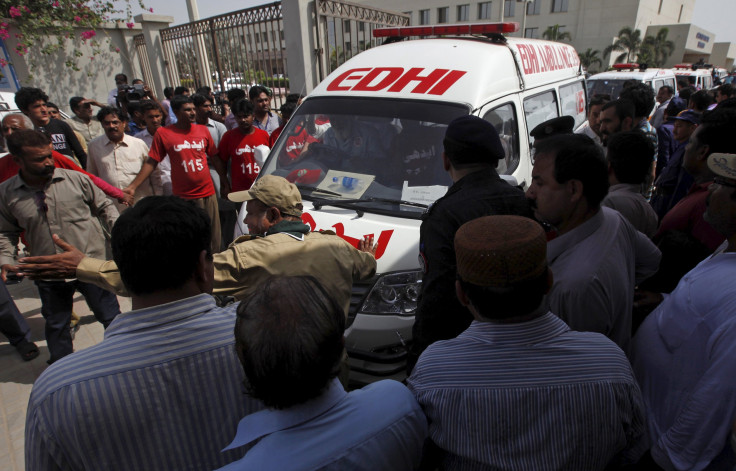Who Are The Ismailis? Jundullah Gunmen Launch Karachi Bus Attack, What To Know About Pakistan's Religious Fighting

Gunmen on motorcycles attacked a bus full of commuters in Pakistan's southern city of Karachi Wednesday, killing at least 43 people and covering the vehicle in bullet holes and blood. The attack targeted passengers who were Ismailis, a minority Shi'ite Muslim sect in mostly Sunni Pakistan.
The militant group Jundullah claimed responsbility for the bus massacre. The group has attacked Muslim minorities before and has links with the Pakistani Taliban and the Islamic State. "These killed people were Ismaili and we consider them kafir (non-Muslim). We had four attackers. In the coming days we will attack Ismailis, Shi'ites and Christians," Jundullah spokesman Ahmed Marwat told Reuters.
Police Superintendent Najib Khan told Reuters there were six gunmen. "As the gunmen climbed on to the bus, one of them shouted, 'Kill them all!' Then they started indiscriminately firing at everyone they saw," a wounded woman told a television channel by phone.
Prime Minister Nawaz Sharif condemned the attack. "This is a very patriotic and peaceful people who have always worked for the wellbeing of Pakistan," he said. "This is an attempt to spread divisions in the country."
The militants left leaflets on the bus that used a derogatory Arabic word for Shi'ites, blaming them for "barbaric atrocities ... in the Levant, Iraq and Yemen."
"Around six months ago, our community elders had alerted us to be careful because of security threats but things had calmed down recently," said Uzma Alkarim, a member of the Ismaili community who took the bus to work every day.
In January, 60 people were killed when Jundullah militants bombed a Shi'ite mosque in the southern province of Sindh. Both the Taliban and Jundullah took credit for the bombing of Wagah border crossing last year that killed 57 people. Jundullah militant also said they were behind a church bombing that killed more than 80 people in Peshawar in 2013.
Karachi is home to 18 million people and is Pakistan's financial center. Ismailis are followers of the Aga Khan, who lives in France and is the descendant of Imam Ismail, according to the BBC. They live in over 25 different countries.
Ismaili spiritual leader Prince Karim Aga Khan said in a statement the "attack represented a senseless act of violence against a peaceful community."
© Copyright IBTimes 2025. All rights reserved.






















